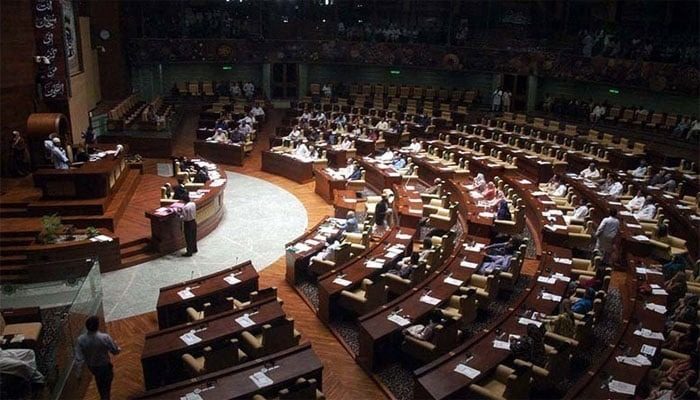Shah confidently asserted, “The litigants will no longer have to wait for years to see their cases resolved,” highlighting the transformative potential of the amendment for those seeking justice

By our correspondent
KARACHI: The Sindh Assembly has successfully passed a resolution endorsing the 26th Constitutional Amendment, achieving a significant majority. The resolution, presented by Sindh Chief Minister Syed Murad Ali Shah, is a pivotal step aimed at expediting the delivery of justice through essential constitutional reforms.
In a compelling address, Chief Minister Shah articulated the pressing need for these amendments to ensure a more efficient judicial process. He announced that, moving forward, judges for the Supreme Court will be appointed from all four provinces, a move designed to decentralize judicial power and enhance accessibility. Additionally, constitutional court benches will be established within the provinces, significantly streamlining the judicial framework. Shah confidently asserted, “The litigants will no longer have to wait for years to see their cases resolved,” highlighting the transformative potential of the amendment for those seeking justice.
Support for the amendment came not only from the ruling party but also from opposition leaders. Ali Khurshidi, the Opposition Leader, expressed his backing, stating, “The 26th Amendment is the result of good politics, and we support the Sindh government’s resolution.” This endorsement underscores a rare moment of unity among diverse political factions regarding the need for judicial reform. Yet, amidst the consensus, concerns were raised about the integrity of the process. Shabbir Qureshi, a member of the Sunni Ittehad Council, cautioned against repeating past mistakes, remarking, “Don’t commit injustices today that you won’t be able to endure tomorrow.”
His warning resonates with historica” gri’vances about constitutional violations for personal or political gain, urging lawmakers to consider the long-term implications of their decisions. Senior Minister Sharjeel Memon added a critical perspective, indicating that the judiciary has, at times, acted in ways that undermine democratic principles. This acknowledgment highlights the complex interplay between judicial power and political authority in Pakistan, reflecting the broader challenges faced by the country’s governance structures.
The passing of the 26th Amendment signifies a noteworthy shift In Pakistan’s judicial landscape, with an emphasis on making the legal system more accessible and efficient for all citizens. The widespread support across various political factions in the Sindh Assembly signals a potential transformation in the delivery of justice, raising hopes that the amendment will usher in a new era of responsiveness and fairness in Pakistan’s legal proceedings.



